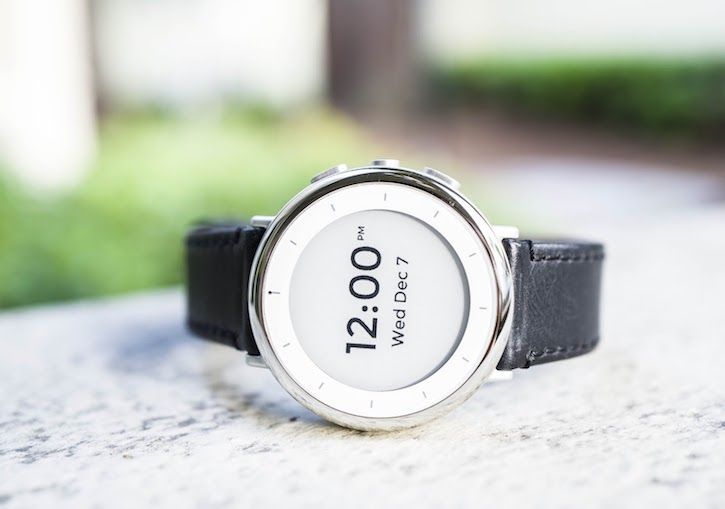Verily Incorporates Study Watch into AURORA Research
The life science research organization will use its wearable, Study Watch, to work with UNC and Harvard on the expansive mental health study.

Image courtesy of Verily.
Verily, the life science research organization, will work the University of North Carolina and Harvard to gain a better understanding of posttraumatic stress, post-concussion syndrome, and depression.
The Alphabet Inc.-owned group will work in partnership UNC and Harvard in the AURORA study, Verily announced in a blog post on Monday. Verily brings to the table an innovative approach to gathering study data with its wearable, Study Watch.
The National Institute of Mental Health-backed AURORA study is following 5,000 people who have visited emergency rooms at 1 of 19 participating institutions after experiencing trauma. The study will gather data on factors such as mood, activity, and sleep and attempt to glean insights as to how these factors relate to the development of mental disorders.
Collecting this data presents its own set of challenges. That’s where Verily comes in with its wearable, Study Watch. Verily introduced Study Watch in April with the intent of streamlining and improving how study data gets collected.
Study Watch offers certain advantages, according to its creators. Features include extended battery life, multiple physiological and environmental sensors, expanded data capacity, enhanced processing capability, flexible firmware for future updates, and a display that’s always on (displaying the time) without draining the battery. Verily notes that the wearable provides users with the time and instructions only. Study Watch also features the added security precuation of encrypting all stored data.
The AURORA study will also include data gathered from smartphones.
The purpose of the AURORA study, and Verily’s participation, is to determine if there are certain physiologic data points that indicate a person is at risk for trauma-related mental disorders. In addition to the data collected by smartphones and Study Watch, investigators will also incorporate information collected during in-person visits, genomics, neurocognitive testing, patient surveys, and reviews of medical records, Verily said in its blog post.
“We believe this study could serve as a model for collecting and synchronizing multidimensional datasets that touch the full lives of participants and has the potential to be transformative for mental/brain health research and care,” Verily said.
Related
Novo Nordisk, Glooko Launch New Diabetes-Management App
Worldwide Smartphone Study Models Correspondence Between Inactivity, Obesity
Children’s hospitals face complex challenges dealing with disasters
April 18th 2025Pediatric hospitals deal with different factors in weather-related events and other emergencies. Terri Wilson of the Children’s Hospital Association talks about the challenges and the need for more planning and support.
Telehealth faces a looming deadline in Washington | Healthy Bottom Line podcast
February 12th 2025Once again, the clock is ticking on waivers for telemedicine and hospital-at-home programs. Kyle Zebley of the American Telemedicine Association talks about the push on Congress and the White House.